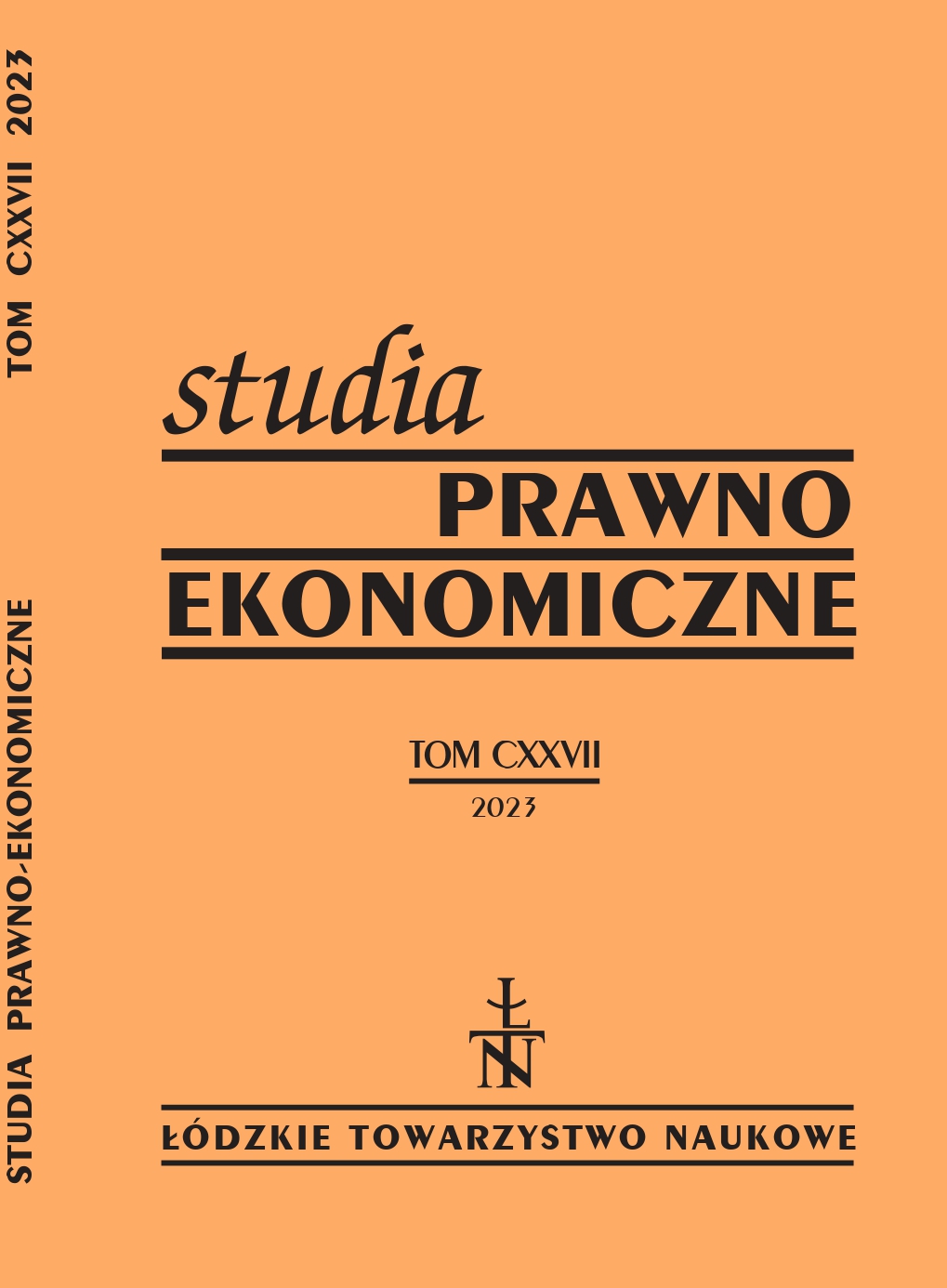International subjectivity of the Order of Malta
DOI:
https://doi.org/10.26485/SPE/2023/127/4Keywords:
subject of international law, law of legation, international agreement, diplomatic relations.Abstract
Background: The subject of this article is to consider the position of the Sovereign Knightly Hospitaller Order of Saint John of Jerusalem, Rhodes and Malta in the international arena based on its attributes that characterize entities with international legal subjectivity.
Research purpose: The main research purpose of the work is to determine whether equipping the Order of Malta with some of the rights vested in subjects of international law while not having territory, population or sovereignty in the traditional sense is sufficient to recognize the Order’s international legal personality. Both the Order of Malta’s ability to conclude international agreements and the right to receive and send diplomatic representatives are subject to certain limitations. The Order also does not have, in principle, the ability to participate in international conferences in the traditional sense since its delegates have only observer status at them, which means that they do not have the right to vote on draft agreements being prepared.
Methods: The research was carried out primarily using the historical and legal method, taking into account the typically extracted periods in the history of the Order of Malta, i.e. the period before the establishment of the Kingdom of Jerusalem (until 1099), the Jerusalem period (1099–1291), the Cypriot period (1291–1310), Rhodian (1310–1522) and Maltese (1530–1798), as well as the sociological method.
Conclusions: The conclusion of the research conducted in this way boils down to the statement that the Order of Malta, as an entity of a special nature, has international legal subjectivity, although with a limited scope. It exercises the rights of international legal subjects, primarily by concluding international agreements and establishing and maintaining diplomatic relations with states and international organizations.
Downloads
References
Antonowicz L., Podręcznik prawa międzynarodowego, Wolters Kluwer, Warszawa 2015.
Błaszczyk H., Inicjatywy dyplomatyczne i działalność kulturalno-religijna Zakonu Maltańskiego, Przegląd Geopolityczny 2015/14, s. 151–158.
Bogacki P., Zagadnienie podmiotowości prawnej w stosunkach międzynarodowych, Roczniki Nauk Prawnych 1997/VII, s. 213–223.
Cieślak A., Zakon Szpitalników Św. Jana Jerozolimskiego jako podmiot prawa międzynarodowego do 1798 roku, Palestra 2002/46/1–2, s. 107–114.
Góralczyk W., Sawicki S., Prawo międzynarodowe publiczne w zarysie, LexisNexis, Warszawa 2013.
Karski K., Zakony rycerskie Kościoła katolickiego jako podmioty prawa międzynarodowego (studium historycznoprawne), Studia Iuridica 2002/40, s. 93–106.
Kuźniak B., Zakon Kawalerów Maltańskich – suweren bez ziemi?, w: J. Menkes, E. Cała-Wacinkiewicz (red.), Państwo i terytorium w prawie międzynarodowym, C.H. Beck, Warszawa 2015, s. 367–377.
Lange T.W., Szpitalnicy, Joannici, Kawalerowie Maltańscy, Poznań 1994, s. 431–442.
Ławniczak A., Oryginalne rozwiązania systemów rządów na przykładzie Zakonu Maltańskiego, Przegląd Prawa Konstytucyjnego 2014/3 (19), s. 73–96.
Orzeszyna K., Podmiotowość i suwerenność prawnomiędzynarodowa Zakonu Maltańskiego, Roczniki Nauk Prawnych 2005/XV/2, s. 171–185.
Perkowski M., Podmiotowość prawa międzynarodowego współczesnego uniwersalizmu w złożonym modelu klasyfikacyjnym, Temida 2008/2, Białystok.
Sire H.J.A., The Knights of Malta, Yale University Press, New Haven and London 1996.
Sozański J., Podmiotowość organizacji i konferencji międzynarodowych (międzyrządowych) – wprowadzenie do zagadnienia, Roczniki Administracji i Prawa 2013/XIII, s. 65–88.
Sozański J., Prawo traktatów: zarys współczesny, Polskie Wydawnictwo Prawnicze Iuris, Warszawa 2008.
Szwejkowska M., Milkowski K., Suwerenny Zakon Kawalerów Maltańskich jako podmiot prawa międzynarodowego, Studia Prawnoustrojowe UWM, 2017, s. 59–70.
Relacje dwustronne – Embassy of the Sovereign Order of Malta to Poland, https://polandembassy.orderofmalta.int/pl/relacje-dwustronne/; stan na 24.02.2023 r.
Suwerenny Rycerski Zakon Maltański Członkowie Zakonu, https://zakonmaltanski.pl/zakonmaltanski/czlonkowie-zakonu/ stan na 23.03.2023 r.
Suwerenny Rycerski Zakon Maltański FAQ, https://zakonmaltanski.pl/zakon-maltanski-wpolsce/faq/; stan na 24.02.2023 r.
Suwerenny Rycerski Zakon Maltański Misja, https://zakonmaltanski.pl/zakon-maltanski/misja/; stan na 24.02.2023 r.
Suwerenny Rycerski Zakon Maltański Namiestnik Wielkiego Mistrza, http://ambasada.zakonmaltanski.pl/zakon-maltanski/wielki-mistrz/; stan na 24.02.2023 r.
Suwerenny Rycerski Zakon Maltański Namiestnik Wielkiego Mistrza, http://fundacjamaltanska.pl/wielki-mistrz/; stan na 24.02.2023 r.
Suwerenny Rycerski Zakon Maltański Władze Zakonu, http://fundacjamaltanska.pl/wladzezakonu/; stan na 24.02.2023 r.



